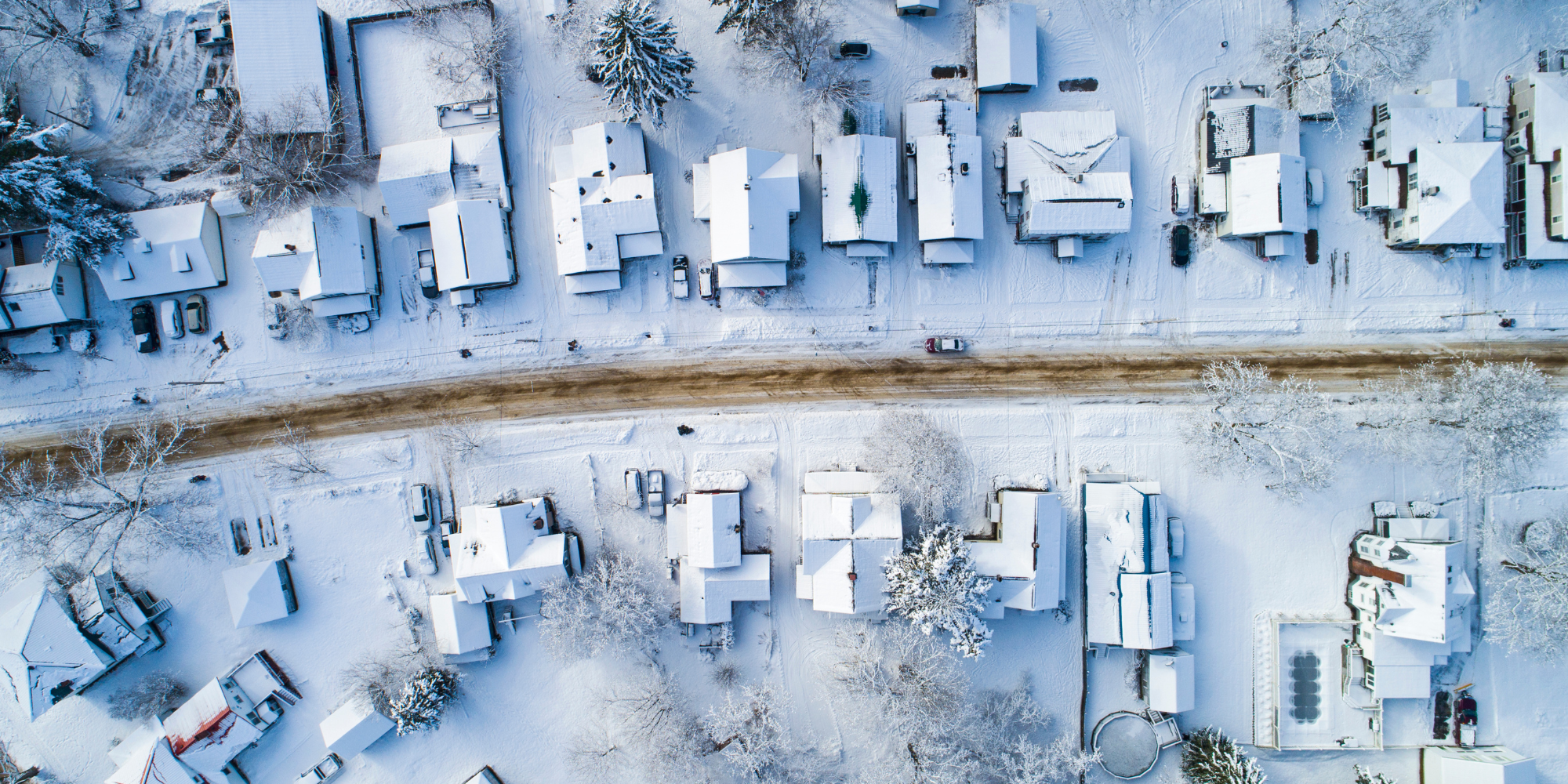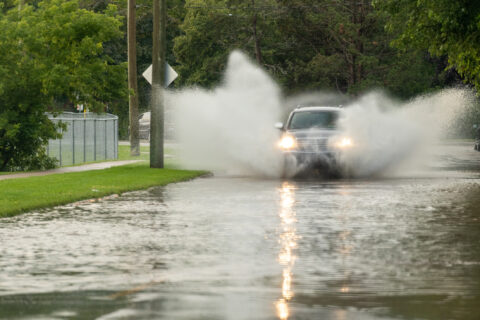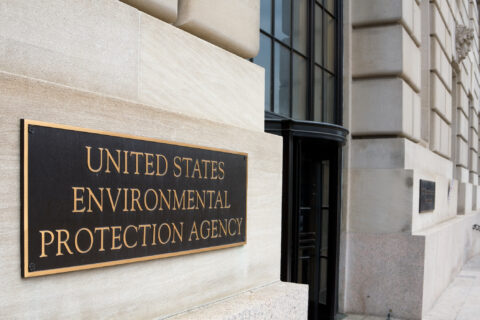In the heart of the holiday season, millions were stranded and lost power as temperatures rapidly plunged, in some places by nearly 40 degrees. During a prolonged outage, strong building energy codes can maintain safe temperatures for days, in the throes of winter or a summer heatwave. These codes have improved markedly in recent years, but most of the country hasn’t caught up. A new grant program, just released from the U.S. Department of Energy (DOE) and created through the Bipartisan Infrastructure Law can help cities update their building energy codes.
The United States spends over $400 billion each year to power our homes and commercial buildings, which consume 75 percent of our nation’s electricity, 40 percent of our total energy, and account for 35 percent of national CO2 emissions. Building energy use can influence the long-term affordability of housing—in some areas low- and moderate-income households can spend 10 percent or more of their monthly income on energy costs or two to three times that of median households. Energy efficiency represents a proven and low-cost way to save money, supporting and increasing the competitiveness of our businesses while helping mitigate the climate crisis.
The U.S. does not have a national building code or energy code; instead, states or local governments can choose to adopt one of the national model building or energy codes, a modified version of the model codes, or their own state or local-specific code.
Energy codes like the International Energy Conservation Code (IECC) are a proven, cost-effective mechanism to reduce energy use and greenhouse gas emissions and save consumers money. Energy codes cover the building itself—for example, the walls/floors/ceiling insulation, windows, air leakage, and duct leakage.
Resilient and Efficient Codes Implementation
In December, DOE released a Funding Opportunity Announcement (FOA) to support state, local, tribal and territorial (SLTT) governments in sustained cost-effective implementation of updated energy codes. This first tranche of Resilient and Efficient Codes Implementation (RECI) funding is expected to make $45,000,000 available to SLTT governments. This round of funding is anticipated to result in 10-30 awards, with each awardee receiving between $500,000 and $10,000,000. Cost sharing is encouraged, but not required under this FOA.
The program has an initial deadline of January 31, so local officials will need to act quickly to apply. Here are three key things to know about RECI to take advantage of this opportunity.
Potentially Eligible Activities
Although DOE hasn’t provided an exhaustive list, RECI provides broad flexibility on eligible projects. Jurisdictions would likely be able to use funding to support energy code activities such as:
- Adopt a new code or update current energy codes, including code development consulting services and publication/e-publication costs (including stretch codes)
- Training and certification achievement for code officials, designers, and contractors on code provisions, compliance studies to tailor training and certification efforts
- Seek building department accreditation, a process that ensures high quality building department operations
- Develop and implement software tools, like electronic permitting
Keys to Successful Applications
The areas of interest targeted under the FOA include state and local code adoption; workforce development; implementation and compliance; innovation; equity, energy and environmental justice; and partnerships. The FOA includes additional requirements or recommendations for successful applications:
- A State’s participation is required, while partnerships are encouraged. The FOA requires the involvement of a relevant state agency (for example the building, housing or environmental department, or the state energy office). Recognizing that in many states code implementation falls to local governments, DOE has taken an approach that would allow support to flow to local governments and help meet their specific needs. Applicants for funding can be either a state agency or a partnership that includes a state agency. The state agency does not need to be the prime applicant or in the state where the local government is located. This provides a significant opportunity for communities whose energy priorities may differ from their state’s or that are geographically close to another state. Partnerships can include state/local code departments, code developers (like the International Code Council), and code practitioners (like builders and architects).
- All code updates are eligible, but greater impacts are prioritized. The law does not require that jurisdictions update to the latest edition of model codes, but as a competitive program DOE will consider the impacts of proposed projects—including energy/emissions/cost savings and resilience, system, and health benefits—and the ability to assess and sustain these impacts.
- Community benefits need to be documented. Funded projects are expected to support meaningful community and labor engagement; invest in the workforce; and advance environmental justice, diversity, equity, inclusion, and accessibility. Applications must include a Community Benefits Plan to describe how the proposed project will incorporate these objectives.
- Cross-program integration. DOE encourages leveraging other funding sources, such as building energy codes technical assistance and funding via the Inflation Reduction Act (IRA), state or localized funding, Energy Efficiency and Conservation Block Grant (EECBG) funding, utility partnerships, and other private sources along with a cohesive implementation plan that shows how all the funding sources will together address the climate, energy, and policy goals of more-efficient buildings.
- Intersections with other key priorities. In addition to energy-related savings, the Bipartisan Infrastructure Law recognizes additional priorities that often intersect with energy codes. Projects that reach into these areas are also eligible for funding (if there is a clear connection with energy codes). These topics include cost-effective, high-performance, and net-zero energy buildings; improving resilience, health, and safety; water savings and other environmental impacts; and economic impacts of energy codes, including labor market and domestic manufacturing.
How to Apply
There is urgency to access this round of RECI funding. Applicants must submit a concept paper by 5:00 pm ET on January 31, 2023, to be eligible to submit a full application, which is due by 5:00 pm ET on March 27, 2023.
The concept paper requirements can be found on page 41 of the FOA. A successful concept paper should clearly describe the proposed project, how it is impactful, and how the project will advance the FOA goals and achieve the targeted outcomes, savings, and benefits. Additionally, the concept paper should call out the identified risks and challenges associated with the project work, including possible mitigation strategies, impact, and capacity to carry out the proposed project. Concept papers must include the ability and intent to leverage funding, how to avoid duplicative efforts and maximize impact, and the need for the proposed project. You can review the application requirements and apply through DOE’s EERE-Exchange.
The International Code Council is Here to Help
As the principal organization representing SLTT governments and officials that adopt and implement energy codes, the International Code Council is prepared to collaborate with communities to develop proposals that incorporate traditional implementation resources or develop innovative approaches.
The International Code Council co-leads a Strategic Energy Code Implementation Team (SECIT), which will partner with RECI applicants by providing wrap-around energy code services. Our team can also assist jurisdictions in developing applications and identifying potential partners for RECI grants.
To join any of these efforts, or to learn more about RECI funding in general, visit iccsafe.org/federalgrants or contact Stella Carr, the Code Council’s Energy and Resilience Project Manager, for assistance.
About the Author
Stella Carr is the Energy and Resilience Project Manager at the International Code Council. In this role she helps Code Council members and customers access grants that support the adoption and implementation of energy and resilience building codes.










